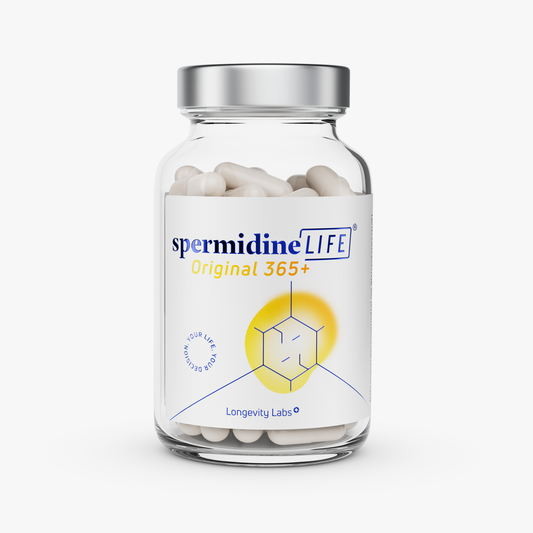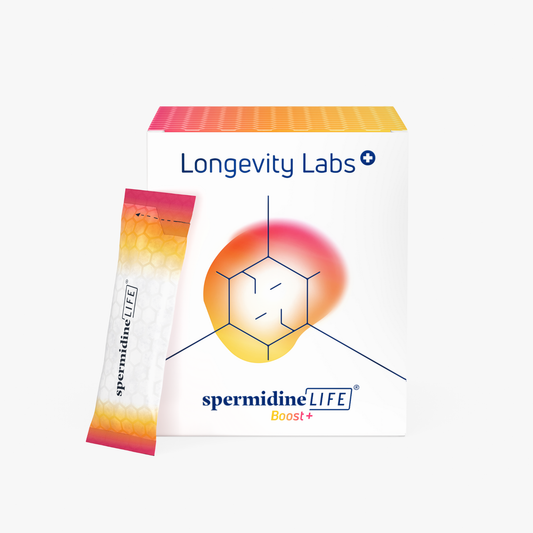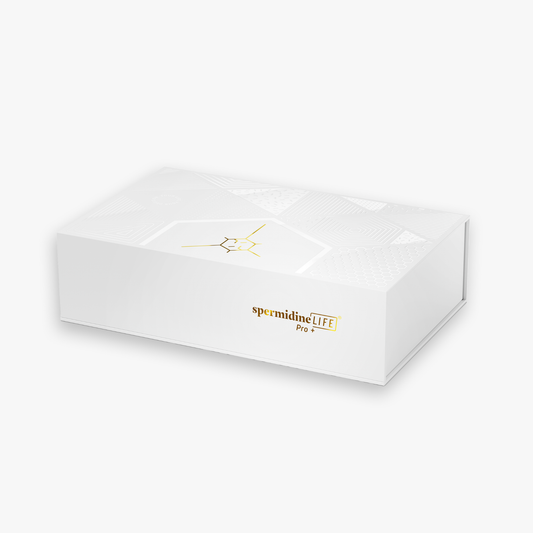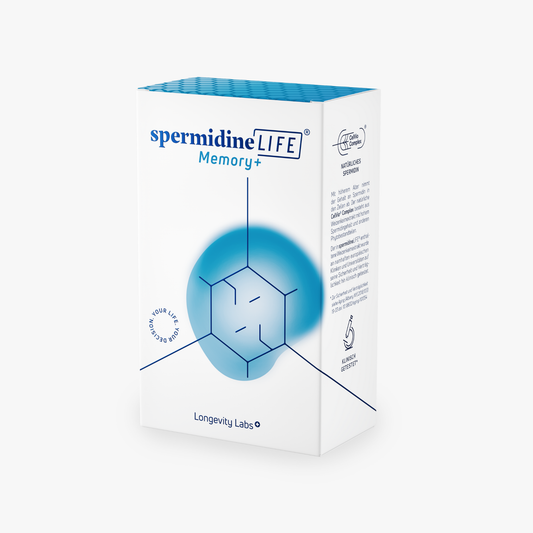
Boost the immune cells with the right foods like sprouts & microgreens - guest post by Catrin (Instagram: @CookingCatrin)
Fasting,Immunity+, TLL LongevityLabsAt the moment, nutrition is very much about supporting the immune system and immune cells. Reason enough to ask an expert how this is actually connected. I talked to Mariella Lahodny-Bothe, a self-employed nutritionist and entrepreneur of Bubble Foods and immediately turned her tips into a recipe:
Catrin: Why does nutrition play such an important role in the topic of immune defense?
Mariella: Both malnutrition and overeating can weaken immune cells. This is because the entire immune system, with specific and non-specific defenses, only functions optimally if all necessary nutrients such as proteins, vitamins and minerals are sufficiently present.
This also applies to the condition of the skin and mucous membrane. It represents a physical barrier to prevent pathogens from entering the body in the first place. This organ also depends on a balanced diet to maintain its protective function.
In addition to the mechanisms of immune defense, which have been known for a long time, the intestine has become the focus of scientific attention in recent years. The intestine is home to around 100 trillion microorganisms, including fungi, viruses and numerous different bacteria. These microorganisms perform a variety of functions that have not yet been fully explored. However, we now know that the composition of this intestinal microbiota, colloquially known as intestinal flora, plays a crucial role in our health. For example, the composition of microorganisms differs between healthy individuals and those with certain chronic diseases. Research results in recent years have also shown that the microorganisms digest certain food components and produce substances that have an effect on the immune defense. Polyamines are among these substances.
The diet probably influences not only the composition of the microbiota but also the production of polyamines by intestinal bacteria.
CatrinWhat is the importance of polyamines and how do they work or what do they do?
Mariella: Polyamines act directly on the cell and influence, among other things, cell growth and cell proliferation. One particular polyamine, called spermidine, is particularly fascinating to science. A study published in 2020 by German and British researchers was able to show that, in laboratory experiments, spermidine balances the
immune response into balance. This happens when spermidine stimulates certain immune cells (helper cells) to specialize. The helper cells become so-called regulatory immune cells, which ensure that the immune defense does not overshoot the target. This is important because with the help of the regulatory immune cells, the body's own cells are recognized and left alone, while pathogens continue to be fought. In other words, animal studies have shown that spermidine from food leads to an attenuation of inflammatory reactions in the intestine.
In addition, several previous studies showed that spermidine stimulates autophagy in cells.
CatrinAutophagy was mentioned or briefly touched upon. What is it exactly? What happens there in the body and the cells?
MariellaAutophagy literally means that the cell digests itself. In fact, however, autophagy is much more a mechanism by which the cell rejuvenates itself and thus prevents itself from dying. With the help of enzymes, the cell digests damaged or altered cell components inside it. These would otherwise accumulate and sooner or later lead to cell death. In the same way, invading microorganisms can be rendered harmless.
This whole process also has the advantage that the degradation substances from it can in turn be recycled and used again.
The importance of autophagy for a healthy and long life has been investigated in numerous studies for several years. Some of these scientific papers indicate, for example, that the cell's ability to autophagy not only protects against certain chronic diseases, but may also extend the lifespan of living organisms. This is because autophagy decreases with age.
Autophagy also plays an important role in immune defense. For example, it controls the activation, function and survival of certain immune cells.
CatrinCan diet help to stimulate autophagy?
Mariella: On the one hand, a reduced calorie intake, such as in interval fasting, stimulates autophagy. The important thing here is that there should be no malnutrition despite a lower energy intake. However, this is not easy to implement in the long term and is not at all suitable for certain groups of people such as those who are underweight or very old.
Another approach that is being discussed is the intake of spermidine through food. This polyamine is found in many foods such as mushrooms, legumes, corn, whole grains, long-aged cheeses and wheat germ.
Catrin: What do you look for in times of increased viral activity? For you and your family, do you have a secret tip?
Mariella: First of all, of course, we pay attention to good hygiene with regular and thorough hand washing to expose our bodies to as few viruses as possible.
My not-so-secret secret tip would be a balanced lifestyle. This includes in particular sufficient sleep, stress balance and reduction, exercise in the fresh air and a balanced diet with regional and seasonal plant-based foods.
Drinking plenty of water also helps to keep the mucous membranes moist, especially in the cold season, so that viruses cannot enter the body in the first place. In addition, the composition of the intestinal microbiota can be positively influenced by probiotic foods. These include fermented foods such as yogurt or sauerkraut. Dietary fiber from whole grain products, legumes, fruits and vegetables in turn serve as food for the intestinal bacteria.
These plant foods in particular also provide vitamins, minerals, secondary plant compounds and other substances such as spermidine, which help to keep the immune cells fit. So my personal tip is to include a small portion of vegetables and/or fruit with every meal - whether it's a main meal or a snack.
If you don't like vegetables that much, you can hide them in soups, sauces and casseroles, for example. Fruit but also vegetables can also be made into delicious Smoothies that most "green-avoiders" will enjoy. Since these drinks are often relatively high in energy and sugar, they should be considered a meal and not a drink. The diverse mixed drinks make you feel fuller longer if protein-rich foods such as yogurt, soy milk or nuts are mixed into them.
But the daily portion of vegetables can also be used wonderfully in sandwiches. If you add sprouts, which are rich in the polyamine spermidine, you create a little immune booster for in between and get through the day strengthened.
I immediately took on this task and created a superfood sandwich with sprouts. If you want to try your hand at growing your own microgreens, you'll find 4-step instructions below.
Superfood Sandwiches with the Sprouts & Microgreens Theme Special.
Ingredients: 4 servings
Preparation time: 20 minutes
Shopping List:
For the spread:
- 100 g beets {pre-cooked}
- 175 g curd
- Some chili powder
- Some paprika powder
- Salt & pepper
For the sandwich:
- 8 slices of whole wheat/rough grain bread
- 1 zucchini
- 1 tablespoon olive oil
- 1 red bell bell pepper
- 1 yellow bell bell pepper
- ½ bunch fresh parsley
- a few pomegranates
- 8 tablespoons freshly grown sprouts/wheat germs
Preparation:
Finely puree the pre-cooked red beets. Mix with the curd cheese. Season with salt, pepper and a little chili and paprika powder.
Wash and clean the zucchini and cut into thin slices, alternatively slice. Heat the olive oil in a pan and fry the zucchini slices on both sides. Season with salt and pepper. Wash and clean the peppers, cut them into fine strips. Wash the parsley and remove the stems.
Place eight slices of whole wheat, or alternatively, original grain bread on top. Spread the red beet and curd spread evenly on top. Top with the bell bell pepper and zucchini strips, parsley, and a few pomegranate seeds and sprouts. Place the breads on top of each other and cut in half.
Four steps from seed to sprout aka microgreen:
- Soak & activate
- Germination: the grain shell breaks open, stems and roots thrive
- #Greenery: sprouts turn green and develop high-quality amino and fatty acids.
- Sprouts become sweeter, fats become fatty acids. Microgreens are more digestible and very healthy.
All that is needed for sprouting is a sprouting jar with a draining rack and water. Depending on the type of seed, the sprouts are usually soaked in water overnight. Then the water is drained and the seeds are left in the jar to germinate. During this process, the sprouts are rinsed twice a day. Important: be sure to rinse - so that no bacteria get to the sprouts.
Our tip: additionally rinse the body with spermidineLIFE® Immunity+ in addition. Ideally take two capsules per day with a meal, so a good supply is guaranteed. They support cell renewal and our immune cells with zinc and vitamin C.
Catrin Ferrari-Fountain
Editor & Foodblogger
Instagram: @CookingCatrin
Literature used:
Carriche G, Almeida L, Stüve P, Velasquez L, Dhillon-LaBrooy A, Roy U, Lindenberg M, Strowig T, Plaza-Sirvent C, Schmitz I, Lochner M, Simon A, Sparwasser T (2020): Regulating T-cell differentiation through the polyamine spermidine. In: J Allergy Clin. Immunol. article in press. Online at: https://doi.org/10.1016/j.jaci.2020.04.037
Cem E (2020): Nutrition and longevity - From mechanisms to uncertainties. In: Critical Reviews in Food Science and Nutrition, 60:18, 3063-3082, DOI: 10.1080/10408398.2019.1676698.
Kiechl S, Pechlaner R, Willeit P, Notdurfter M, Paulweber B, Willeit K, Werner P, Ruckenstuhl C, Iglseder B, Weger S, Mairhofer B, Gartner M, Kedenko L, Chmelikova M, Stekovic S, Stuppner M, Oberhollenzer, Kroemer G, Mayr M, Eisenberg T, Tilg H, Madeo F, Willeit J (2018): Higher spermidine intake is linked to lower mortality: a prospective population-based study. In: Am J Clin Nutr 2018;108:371-380.
Lazar V, Ditu L-M, Pircalabioru GG, Gheorghe I, Curutiu C, Holban AM, Picu A, Petcu L and Chifiriuc MC (2018): Aspects of Gut Microbiota and Immune System Interactions in Infectious Diseases, Immunopathology, and Cancer. In: Front. Immunol. 9:1830. doi: 10.3389/fimmu.2018.01830
Morselli E, Galluzzi L, Kepp O, Criollo A, Maiuri MC, Tavernarakis N, Madeo F, Kroemer G (2009): Autophagy mediates pharmacological lifespan extension by spermidine and resveratrol. In: AGING, December 2009, Vol. 1 No 12.






